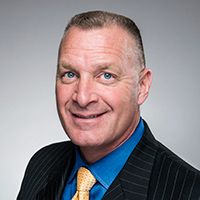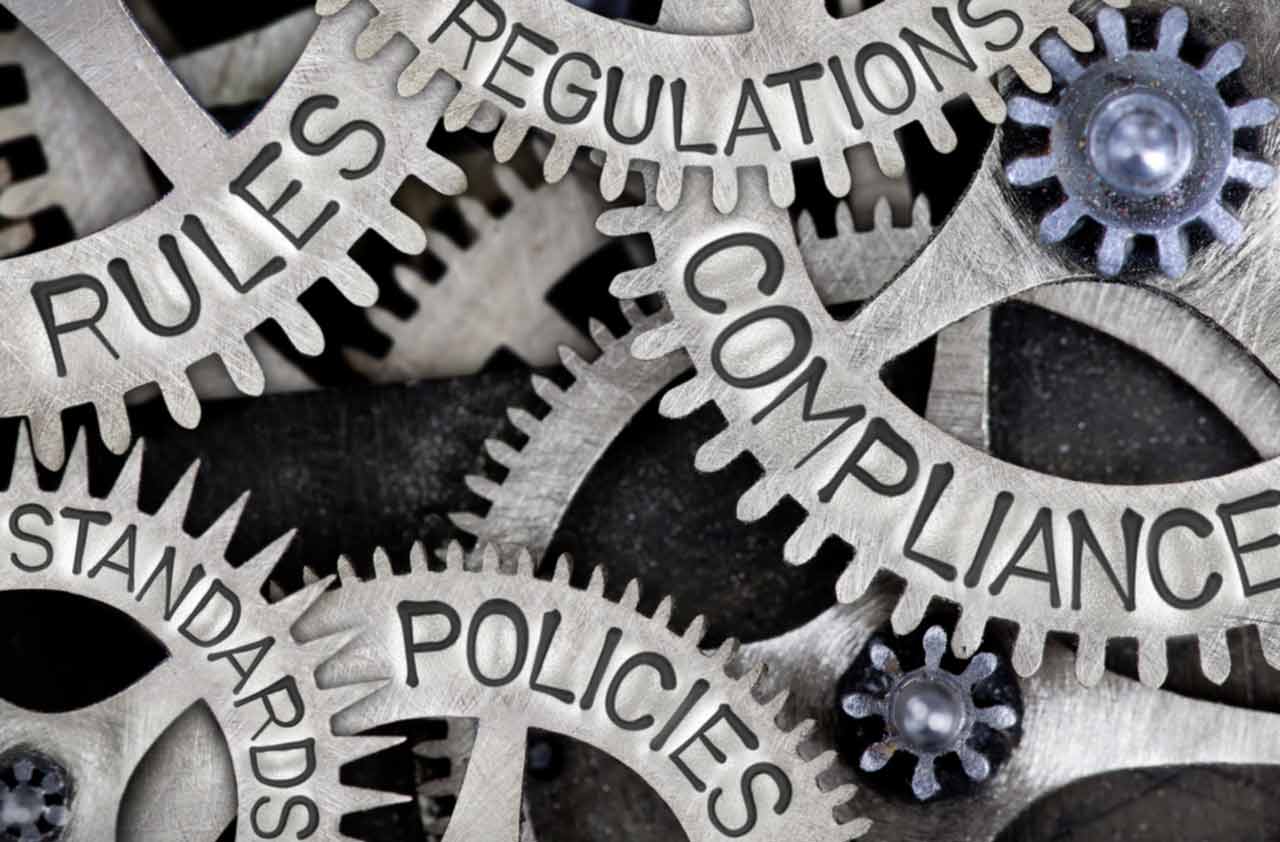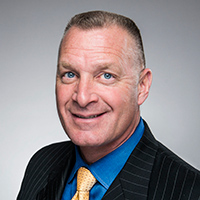I'm a Fiduciary, But I Don't Like the Fiduciary Rule
The rule, which aims to curb conflicts of interest for those who give financial advice, could mean some small clients and advisers could get squeezed out.


Profit and prosper with the best of Kiplinger's advice on investing, taxes, retirement, personal finance and much more. Delivered daily. Enter your email in the box and click Sign Me Up.
You are now subscribed
Your newsletter sign-up was successful
Want to add more newsletters?

Delivered daily
Kiplinger Today
Profit and prosper with the best of Kiplinger's advice on investing, taxes, retirement, personal finance and much more delivered daily. Smart money moves start here.

Sent five days a week
Kiplinger A Step Ahead
Get practical help to make better financial decisions in your everyday life, from spending to savings on top deals.

Delivered daily
Kiplinger Closing Bell
Get today's biggest financial and investing headlines delivered to your inbox every day the U.S. stock market is open.

Sent twice a week
Kiplinger Adviser Intel
Financial pros across the country share best practices and fresh tactics to preserve and grow your wealth.

Delivered weekly
Kiplinger Tax Tips
Trim your federal and state tax bills with practical tax-planning and tax-cutting strategies.

Sent twice a week
Kiplinger Retirement Tips
Your twice-a-week guide to planning and enjoying a financially secure and richly rewarding retirement

Sent bimonthly.
Kiplinger Adviser Angle
Insights for advisers, wealth managers and other financial professionals.

Sent twice a week
Kiplinger Investing Weekly
Your twice-a-week roundup of promising stocks, funds, companies and industries you should consider, ones you should avoid, and why.

Sent weekly for six weeks
Kiplinger Invest for Retirement
Your step-by-step six-part series on how to invest for retirement, from devising a successful strategy to exactly which investments to choose.
I’m a fiduciary, and proud of it. I like that my clients know I always put their best interests first when I’m working with their hard-earned money, and I take that responsibility seriously.
Still, I can’t say I’m happy that the Department of Labor’s long-delayed fiduciary rule finally went into effect on June 9, a little over two months after President Trump delayed its implementation for more study.
The rule emphasizes eliminating conflicts of interest among financial professionals. Until now, some financial professionals, such as brokers, were required to act under only a suitability standard. The products they recommended needed only to be “suitable” to the client’s goals and objectives given their current situation, meaning that it was OK to recommend products that were suitable but that came with higher fees or expenses – from which the adviser could earn some extra money. Now, under the fiduciary rule, the advice they give for your retirement accounts is required to be in your best interest, not their own.
From just $107.88 $24.99 for Kiplinger Personal Finance
Become a smarter, better informed investor. Subscribe from just $107.88 $24.99, plus get up to 4 Special Issues

Sign up for Kiplinger’s Free Newsletters
Profit and prosper with the best of expert advice on investing, taxes, retirement, personal finance and more - straight to your e-mail.
Profit and prosper with the best of expert advice - straight to your e-mail.
One thing to keep in mind: The rule applies only to your retirement accounts: those funded with pre-tax dollars, such as your IRA and 401(k), but not individual brokerage accounts.
Problems from the Start
If you’re not sure what standard your financial professional is working under, ask. But there have been problems from the start with the way the rule came to be, the way companies are executing it and what it means to consumers.
That the regulation was delivered by a federal agency and pushed by the past administration, circumventing Congress’ opposition, is troubling.
It isn’t as though the problems the rule addresses haven’t been on Congress’ radar. Alternatives had already been proposed. And it’s possible there would be fewer objections if the changes had gone through the proper channels.
The financial services industry opposed the DOL rule from the beginning — arguing that it would make retirement planning too expensive for middle- and lower-income individuals seeking professional guidance. And yet, in fits and starts, the rule moved toward reality, and the industry began changing to deal with it. Large and small firms started reinventing themselves and how they do business.
Small Clients Being Squeezed Out
Already, we’ve seen companies raising their minimums; if you don’t have enough in your portfolio to make it worth the work, and you’re not paying those commissions and fees anymore, you may have a difficult time finding a good financial professional. Existing clients could have to look elsewhere for help, and new clients may have to go where their account size is welcomed or become do-it-yourselfers.
The level of advice an individual receives should not be based on the size of their retirement portfolio. And DIYers will be facing a market due for a correction. They could ruin their retirement if they don’t get it right.
And now that the rule has come to pass, I think firms will use it as a marketing angle. They’ll say, “We’ve been waiting for this, and we’re ready.” But they won’t be there for everyone.
Pressure on Financial Professionals
And every adviser won’t be around, either. New costs, compliance obligations and other issues associated with the rule will force some financial professionals out of business. And a lot of older, experienced financial professionals may decide to retire rather than deal with the educational requirements, not to mention the thought of what could happen if a client decides they should have done better and takes the case to court.
So you’ll see options disappearing for lower-income individuals, but also any individual who simply prefers working with the financial professional they’ve always had, in the manner they’ve grown used to.
My Final Take on the Fiduciary Rule
I’ve been a fiduciary for more than 20 years, and I think it’s the best way to conduct business. But there are problems with the DOL rule that I believe need fixing.
As President Trump said in his Feb. 3 memorandum ordering a review of the rule, further analysis is in order.
Profit and prosper with the best of Kiplinger's advice on investing, taxes, retirement, personal finance and much more. Delivered daily. Enter your email in the box and click Sign Me Up.

Christopher A. Murray is a professional financial adviser, insurance professional and president of the Maryland-based Murray Financial Group. He is a Certified Fund Specialist, Board Certified in Mutual Funds and a Certified Senior Consultant. Murray has produced and hosted the weekly "Your Financial Editor" radio show for 17 years and provides daily business and financial market updates. He is an active member of the National Press Club and has contributed to several publications, including "The Wall Street Journal."
-
 3 Reasons to Use a 5-Year CD As You Approach Retirement
3 Reasons to Use a 5-Year CD As You Approach RetirementA five-year CD can help you reach other milestones as you approach retirement.
-
 Your Adult Kids Are Doing Fine. Is It Time To Spend Some of Their Inheritance?
Your Adult Kids Are Doing Fine. Is It Time To Spend Some of Their Inheritance?If your kids are successful, do they need an inheritance? Ask yourself these four questions before passing down another dollar.
-
 4 Estate Planning Documents Every High-Net-Worth Family Needs
4 Estate Planning Documents Every High-Net-Worth Family NeedsThe key to successful estate planning for HNW families isn't just drafting these four documents, but ensuring they're current and immediately accessible.
-
 The 4 Estate Planning Documents Every High-Net-Worth Family Needs (Not Just a Will)
The 4 Estate Planning Documents Every High-Net-Worth Family Needs (Not Just a Will)The key to successful estate planning for HNW families isn't just drafting these four documents, but ensuring they're current and immediately accessible.
-
 Love and Legacy: What Couples Rarely Talk About (But Should)
Love and Legacy: What Couples Rarely Talk About (But Should)Couples who talk openly about finances, including estate planning, are more likely to head into retirement joyfully. How can you get the conversation going?
-
 How to Get the Fair Value for Your Shares When You Are in the Minority Vote on a Sale of Substantially All Corporate Assets
How to Get the Fair Value for Your Shares When You Are in the Minority Vote on a Sale of Substantially All Corporate AssetsWhen a sale of substantially all corporate assets is approved by majority vote, shareholders on the losing side of the vote should understand their rights.
-
 How to Add a Pet Trust to Your Estate Plan: Don't Leave Your Best Friend to Chance
How to Add a Pet Trust to Your Estate Plan: Don't Leave Your Best Friend to ChanceAdding a pet trust to your estate plan can ensure your pets are properly looked after when you're no longer able to care for them. This is how to go about it.
-
 Want to Avoid Leaving Chaos in Your Wake? Don't Leave Behind an Outdated Estate Plan
Want to Avoid Leaving Chaos in Your Wake? Don't Leave Behind an Outdated Estate PlanAn outdated or incomplete estate plan could cause confusion for those handling your affairs at a difficult time. This guide highlights what to update and when.
-
 I'm a Financial Adviser: This Is Why I Became an Advocate for Fee-Only Financial Advice
I'm a Financial Adviser: This Is Why I Became an Advocate for Fee-Only Financial AdviceCan financial advisers who earn commissions on product sales give clients the best advice? For one professional, changing track was the clear choice.
-
 I Met With 100-Plus Advisers to Develop This Road Map for Adopting AI
I Met With 100-Plus Advisers to Develop This Road Map for Adopting AIFor financial advisers eager to embrace AI but unsure where to start, this road map will help you integrate the right tools and safeguards into your work.
-
 The Referral Revolution: How to Grow Your Business With Trust
The Referral Revolution: How to Grow Your Business With TrustYou can attract ideal clients by focusing on value and leveraging your current relationships to create a referral-based practice.